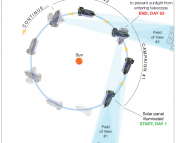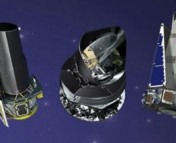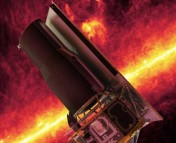For those of us who care about exoplanets, the last few months have been tense. The Kepler Space Telescope, discoverer of over 2000 planet candidates (see this and this), including a handful that are smaller than Earth and another handful in the so-called habitable zone, is coming to the end of its nominal mission lifetime this November. In a panel last month (see this), the Senior Review Committee heard from science teams about the progress of Kepler and other NASA-funded space missions, including the Hubble Space Telescope. The Senior Reivew Committee just published a review that evaluates and ranks the various missions and recommends which missions should be extended and for how long.
Fortunately for planets, NASA ranked Kepler first among its Discovery-Class ($10-$15 million/year) missions. “The Kepler mission is an outstanding success,” writes the Senior Review Committee. The Committee recommends that NASA extend the Kepler mission until 2016, with an additional review in 2014 to re-evaluate Kepler’s progress in determining the fraction of Earth-sized planets around other stars.





Trackbacks/Pingbacks